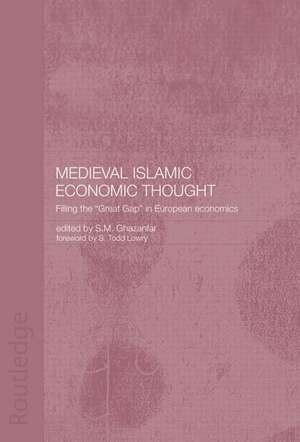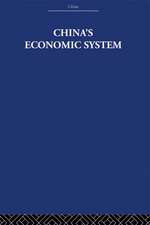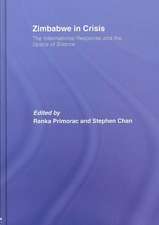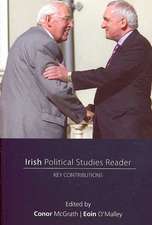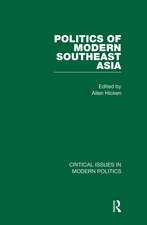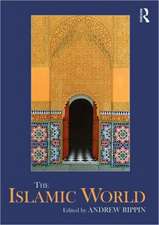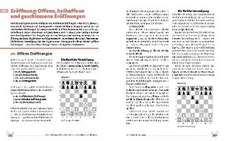Medieval Islamic Economic Thought: Filling the Great Gap in European Economics: Routledge Islamic Studies Series
Autor S.M. Ghazanfaren Limba Engleză Paperback – 16 mai 2007
| Toate formatele și edițiile | Preț | Express |
|---|---|---|
| Paperback (1) | 492.16 lei 6-8 săpt. | |
| Taylor & Francis – 16 mai 2007 | 492.16 lei 6-8 săpt. | |
| Hardback (1) | 852.22 lei 6-8 săpt. | |
| Taylor & Francis – 22 mai 2003 | 852.22 lei 6-8 săpt. |
Din seria Routledge Islamic Studies Series
-
 Preț: 310.65 lei
Preț: 310.65 lei -
 Preț: 326.49 lei
Preț: 326.49 lei -
 Preț: 387.20 lei
Preț: 387.20 lei -
 Preț: 349.53 lei
Preț: 349.53 lei -
 Preț: 419.92 lei
Preț: 419.92 lei -
 Preț: 380.63 lei
Preț: 380.63 lei - 14%
 Preț: 338.33 lei
Preț: 338.33 lei - 17%
 Preț: 237.93 lei
Preț: 237.93 lei -
 Preț: 416.05 lei
Preț: 416.05 lei - 28%
 Preț: 822.01 lei
Preț: 822.01 lei -
 Preț: 389.38 lei
Preț: 389.38 lei -
 Preț: 387.38 lei
Preț: 387.38 lei - 13%
 Preț: 307.22 lei
Preț: 307.22 lei - 18%
 Preț: 1214.92 lei
Preț: 1214.92 lei - 18%
 Preț: 1059.45 lei
Preț: 1059.45 lei -
 Preț: 416.22 lei
Preț: 416.22 lei -
 Preț: 485.07 lei
Preț: 485.07 lei -
 Preț: 389.38 lei
Preț: 389.38 lei -
 Preț: 462.81 lei
Preț: 462.81 lei -
 Preț: 446.58 lei
Preț: 446.58 lei -
 Preț: 442.93 lei
Preț: 442.93 lei -
 Preț: 490.25 lei
Preț: 490.25 lei - 18%
 Preț: 1000.27 lei
Preț: 1000.27 lei -
 Preț: 407.01 lei
Preț: 407.01 lei - 25%
 Preț: 825.25 lei
Preț: 825.25 lei -
 Preț: 408.00 lei
Preț: 408.00 lei - 18%
 Preț: 1061.06 lei
Preț: 1061.06 lei - 18%
 Preț: 1050.02 lei
Preț: 1050.02 lei - 18%
 Preț: 888.99 lei
Preț: 888.99 lei
Preț: 492.16 lei
Nou
Puncte Express: 738
Preț estimativ în valută:
94.17€ • 98.33$ • 77.77£
94.17€ • 98.33$ • 77.77£
Carte tipărită la comandă
Livrare economică 15-29 aprilie
Preluare comenzi: 021 569.72.76
Specificații
ISBN-13: 9780415444514
ISBN-10: 0415444519
Pagini: 300
Dimensiuni: 156 x 234 x 16 mm
Greutate: 0.52 kg
Ediția:1
Editura: Taylor & Francis
Colecția Routledge
Seria Routledge Islamic Studies Series
Locul publicării:Oxford, United Kingdom
ISBN-10: 0415444519
Pagini: 300
Dimensiuni: 156 x 234 x 16 mm
Greutate: 0.52 kg
Ediția:1
Editura: Taylor & Francis
Colecția Routledge
Seria Routledge Islamic Studies Series
Locul publicării:Oxford, United Kingdom
Public țintă
Postgraduate and UndergraduateRecenzii
'A comprehensive and analytical bibliography and a detailed Index of authors accompany this well-prepared and weighty edition.' - Journal of Oriental and African Studies
Cuprins
Notes on contributors S. Todd Lowry Foreword Acknowledgements 1. S.M. Ghazanfar Scholastic Economics and Arab Scholars: The Great Gap thesis reconsidered 2. S.M. Ghazanfar and A. Azim Islahi Economic Thought of an Arab Scholastic: Abu-Hamid Al-Ghazali (AH450-505/1058-1111AD) 3. Paul Oslington Economic Thought and Religious Thought: A comment on Ghazanfar and Islahi 4. S.M. Ghazanfar and A. Azim Islahi A Rejoinder to Economic Thought and Religious Thought 5. S.M. Ghazanfar and A. Azim Islahi Explorations in Medieval Arab-Islamic Economic Thought: Some aspects of Ibn Taimiyah's economics 6. S.M. Gahzanfar History of Economic Thought: The Schumpeterian Great Gap, the lost Arab-Islamic legacy and the literature gap 7. Hamid Hosseini Understanding the Market Mechanism before Adam Smith: Economic thought in medieval Islam 8. Hamid Hosseini Innaccuracy of the Schumpeterian Great Gap Thesis: Economic thought in medieval Iran (Persia) 9. S.M. Ghazanfar and A. Azim Islahi Explorations in Medieval Arab-Islamic Ecomic Thought: Some aspects of Ibn Qayyim's economics (AH691-751/1292-1350AD) 10. S.M. Ghazanfar Medieval Islamic Socio-Economic Thought: Links with Greek and Latin-European scholarship 11. S.M.Ghazanfar Post-Greek/Pre-Renaissance Economic Thought: Contributions of Arab-Islamic Scholastics during the Great Gap centuries 12. S.M. Ghazanfar The Economic Thought of Abu Hamid Al-Ghazali and St Thomas Aquinas: Some comparative parallels and links 13. M. Nejatullah Siddiqi and S.M. Ghazanfar Early Medieval Islamic Economic Thought: Abu Yousuf's (731-798AD) economics of public finance 14. S.M. Ghazanfar Public-Sector Economics in Medieval Economic Thought: Contributions of selected Arab-Islamic scholars 15. S.M. Ghazanfar Medieval Social Thought European Renaissance: The influence of selected Arab-Islamic Scholastics Bibliography Index
Descriere
This book is a collection of papers on the origins of economic thought discovered in the writings of some prominent Islamic scholars, during the five centuries prior to the Latin Scholastics, who include St. Thomas Aquinas.
